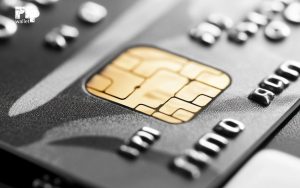U.K. financial regulators are cracking down on Binance which is currently the world’s leading crypto exchange by trading volume.
The UK’s Financial conduct authority FCA made a ruling on the 26th of June that cut off the exchange platform from the U.K.’s main payment systems. Right after FCA’s ruling ordering Binance to “halt all regulated activities in Britain” the crypto exchange company stopped allowing its customers to access crypto to pound withdrawals via Faster Payments. FCA’s ban also stretched to include every other entity in the Binance group prohibiting the company and its subsidiaries from conducting regulated activities in the UK.
In 2020 UK moved to require all crypto-related companies to register with the FCA in a show of compliance to KYC (Know Your Customer) and anti-money laundering rules. Following the rule by the FCA, Santander’s U.K. arm has followed the lead of Barclays bank in prohibiting payments made by UK customers to Binance.
Barclays bank (a British multinational bank) announced to its customers that it would stop both credit card and debit card payments made to Binance while citing FCA’s notice. Apart from Santander’s UK branch, U.K.’s Starling Bank has seemingly voiced a similar stance on Binance mentioning in a tweet that its international currency provider does not support crypto purchases.
The regulatory microscope
Binance has been under the scrutiny of regulators around the globe in the past few months.
Just recently, the exchange asked its users in Ontario, Canada to close their accounts by December 31, 2021, following the Ontario Securities Commission’s notice to crypto exchanges for their violation of local securities laws. Other crypto-related companies such as Poloniex, Bybit, and Kucoin were also affected by OSC’s notice as the regulator began taking legal actions against them for operating as unregistered platforms.
U.S regulatory officials are also expressing concerns over the use of cryptocurrencies in illegal transactions. Currently, the Justice Department and Internal Revenue Service in the U.S are investigating the giant crypto exchange to root out illicit activity in the crypto space.
For the most part, Binance has succeeded largely outside the scope of government oversight. The company has shrugged off the effects of the increasing scrutiny, in particular the FCA ban, mentioning that the ban does not affect its business and that some of its links have been reinstated.
What it means for investors
While these developments might spell doom to some crypto investors, Binance customers can still transfer their holdings to other platforms that allow crypto to fiat conversion. In the UK, for instance, Monzo (another British bank) has said that its customers are free to “invest in crypto”.
It is unclear if the investigations announced against Binance by several countries are a coordinated effort to crack down on the exchange or a mere coincidence.
Even though the crackdown on Binance will likely affect mainstream investor’s approach to crypto, it will certainly highlight the advantages of decentralized and peer-to-peer exchange alternatives. The vulnerability of centralized exchanges to the whims of regulators should be an eye-opener to crypto investors as they look to decentralized platforms as a permanent solution.



